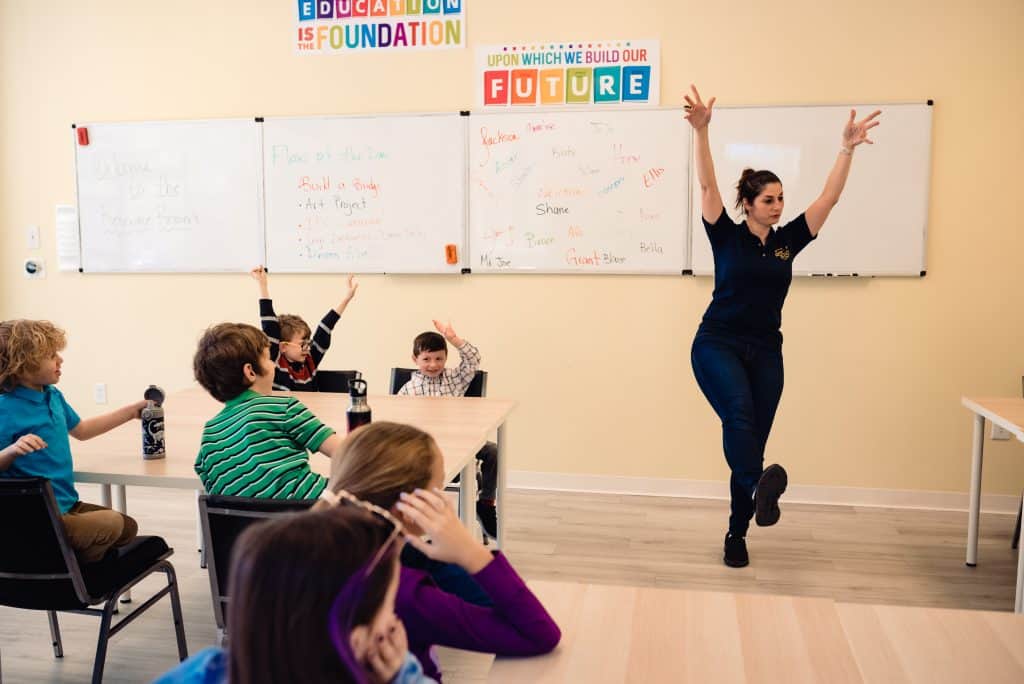It’s back-to-school time, and that means it’s time to start thinking about how to get better grades. If your child is struggling in school, don’t despair – there are plenty of things you can do to help them turn things around. Here are some tips for getting better grades in 2023:
1. Get organized. One of the best ways to improve grades is to simply get more organized. Help your child create a study schedule and stick to it. Encourage them to keep track of assignments and due dates in a planner, and make sure they understand what each assignment is worth so they can prioritize accordingly.
2. Study smarter, not harder. Encouraging your child to study for longer periods of time is not always the best solution – sometimes, it’s better to study more efficiently. Help them identify their strengths and weaknesses, and create a study plan that targets those areas specifically. Encourage them to take practice tests, use flashcards, or find other active ways of learning that work for them.
3. Seek help when needed. Sometimes all it takes to get better grades is a little extra help from a tutor or teacher. If your child is struggling with a particular subject or concept, don’t be afraid to reach out and ask for assistance. Resource Room is a great option for targeted help in nearly any subject area imaginable.
Make a study schedule and stick to it
Creating a study schedule and following it can help you make the most of tutoring sessions. Having an organized routine will allow you to be ready to focus on the tutoring topics. It’s also important to break down your subjects into manageable chunks that you will cover over time and set individual goals for each tutoring session. When setting a schedule, be realistic and include breaks when needed so that your tutoring sessions are productive. Taking the time to make a schedule can help you maximize your tutoring experiences by developing appropriate strategies and efficiently implementing them into practice during tutoring with your chosen tutor.
Get plenty of rest and exercise; both help improve focus and concentration
Rest and exercise are incredibly important for both physical and mental health, especially when it comes to focusing and concentration. Not getting enough hours of restful sleep can have a negative impact on one’s ability to pay attention in class or while completing tasks at work. Similarly, when one exercises regularly it helps release endorphins which can reduce stress levels, thereby helping improve focus. Staying active by participating in sports, yoga, or even just taking a daily walk around the block could make a huge difference in improving concentration. In summation, getting the proper amount of rest and exercise is key to increasing your focus and concentration!
Take breaks while studying, and reward yourself for completing tasks
Taking timely breaks while studying is an important part of the learning process. A brief respite gives your brain a rest and can help restore focus, increasing the effectiveness of the study session. When taking breaks, it’s important to make sure they are productive — use the time to take a walk, grab a bite to eat, or listen to music or meditation. Doing something you enjoy will keep motivation high during extended study periods. Additionally, rewarding yourself for completing tasks is a great way to stay motivated and recognize your own hard work; treat yourself with activities that bring satisfaction such as playing with a pet, seeing friends for coffee, or even just watching an episode of your favorite show. These rewards can boost your morale and keep you from getting burned out on studying!
Create a positive study environment for yourself, where you feel comfortable working in
Creating a positive study environment is an important factor for academic success. The first step is to find an area that is conducive and comfortable for you, free of distractions. Consider setting up a designated workspace with the tools and resources you need to feel organized and successful during your study sessions. This space should be separate from other activities like watching television or playing video games which might be disruptive to your concentration. If possible, have natural light pouring into your area which can improve alertness; additionally, it may be advantageous to experiment with sound while studying, such as soothing music or white noise. If your study environment enables it, try taking breaks periodically and reward yourself when you accomplish certain tasks. Remember to give yourself plenty of time to focus on learning and always prioritize self-care before anything else in order to avoid burnout.
Avoid procrastination by getting started on assignments as soon as possible
Starting on assignments as soon as possible is a great way to avoid procrastination, especially for larger and more complex tasks. Making a plan of how to tackle the task, breaking it down into manageable pieces, and starting with the most difficult or time-consuming elements can be an effective way to make progress without feeling overwhelmed or pressed for time. Additionally, setting aside specific blocks of time throughout the day or week can be an effective approach to staying organized and motivated while avoiding the pitfalls of procrastination. Adopting this strategy may help in creating a habit of productivity that can be applied to other areas of life.
Seek help from teachers or tutors if you’re struggling with certain concepts
Taking advantage of available resources is an important part of school success. If you find yourself struggling to understand a concept, don’t be afraid to schedule extra time with your teacher or a tutor. Not only will it help you get on track, but reputable teachers and tutors can also provide strategies for achieving better study habits and give hints that can improve your mastery of the discipline. In addition, seeking assistance from these professionals may serve to instill a deeper interest or connection with the material, helping you to better appreciate its value in the long run. The key to mastering any subject lies in knowing when to reach out for help and learning how it can boost progress.
Following these tips should help you get the most out of your study time and make better grades. If you’re struggling to stick to a schedule or focus while studying, don’t hesitate to reach out for help. Our advisors at Resource Room are experts in designing schedules and developing concentration techniques that work for each individual student. Contact us today to learn how we can help you succeed in school!





